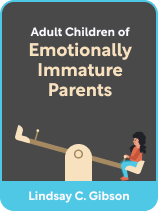

This article is an excerpt from the Shortform book guide to "Adult Children of Emotionally Immature Parents" by Lindsay C. Gibson. Shortform has the world's best summaries and analyses of books you should be reading.
Like this article? Sign up for a free trial here.
What are the signs of emotional neglect in children? How can you easily recognize the signs?
More often than not, children who suffer from emotional neglect try to cope with their trauma in their own way. Adult Children of Emotionally Immature Parents by Lindsey Gibson explores three ways children navigate daily life with an emotionally immature parent.
Keep reading to learn what the signs are to help children who are suffering from emotional neglect.
Strategy 1: They Create a Dream World to Escape
One of the signs of emotional neglect in children is that many children construct future scenarios in which their life is better. This ray-of-hope escape hatch sustains them through difficult times. But carrying these dreams into adulthood can lead emotionally neglected adults to have unrealistic expectations of others and not understand why they continue to feel emotionally alone in their relationships. For example, you may fantasize about a “perfect,” effortless marriage—but marriage takes work. If you enter your marriage with that unrealistic expectation and the negative effects of your parents’ emotional neglect, you’ll feel hopelessly far from that fantasy.
(Shortform note: Experts expand on Gibson’s argument, asserting that while abuse victims often create fantasies to dissociate from and numb themselves to pain and anger, the process of regularly tuning out of real life and into fantasy puts them at risk. By constantly living in the alternate reality they can lose sight of the real world—and their coping mechanism becomes their full-time reality. This can lead to imaginary thinking, unrealistic expectations and further isolation, because they’re not able to intimately engage in relationships.)
Strategy 2: They Take on an Inauthentic Role to Placate Their Parent
Gibson says that another way children cope with emotional neglect is by taking on a role in their family that garners their parent’s attention and makes the parent feel secure. Sometimes the child figures the role out on their own (for example, the “perfect child” who does exactly what the parent wants). Other times the child assumes the role the parent designates (for example, the “deficient child” who the parent constantly corrects to demonstrate their intellectual superiority).
Playing an inauthentic role prevents children from developing a true sense of self and sets them up to enter relationships from a false starting point (which restricts their ability to engage authentically and get their emotional needs met). In addition, constantly operating from an inauthentic state is exhausting and contributes to children’s sense that they’re imposters.
Strategy 3: They Personalize or Deflect Responsibility
A third way Gibson says children cope with their parent’s emotional deprivation is by “personalizing” or “deflecting” problems.
Personalizers believe it’s their job to resolve problems and sometimes take too much responsibility for others’ problems. In addition, they:
- Are attuned to other’s feelings, self-reflective, curious, interested in personal growth, and able to adapt their behavior
- Try to have all the answers and everything under control, appearing to others as if they have no needs or problems, even while falling apart inside
- Believe their emotions and problems are silly or burdensome to others
- Are able to heal and build healthy relationships when they ask for help
Deflectors blame others for their problems and expect other people to solve them. In addition, they:
- Aren’t self-reflective, curious, or adaptable
- React in impulsive, emotionally volatile ways to compel others to solve their problems
- Feel they have no control or power to change things
- Are incapable of asking for help or taking steps to heal and build healthier relationships

———End of Preview———
Like what you just read? Read the rest of the world's best book summary and analysis of Lindsay C. Gibson's "Adult Children of Emotionally Immature Parents" at Shortform.
Here's what you'll find in our full Adult Children of Emotionally Immature Parents summary:
- A look at the damage that emotionally neglectful parents can do to their children
- Strategies to help adults turn their relationship with their parent from toxic to tolerable
- Ways to heal and move forward from childhood emotional neglect







Neglecting children has far-reaching consequences, making it imperative for parents to prioritize their well-being. First and foremost, emotional neglect can lead to lasting psychological scars, affecting self-esteem and interpersonal relationships. A lack of attention and guidance can hinder cognitive development, resulting in poor academic performance and limited opportunities in adulthood. Moreover, neglected children are more vulnerable to engage in risky behaviors, including substance abuse. Neglect also perpetuates a cycle of emotional detachment, as neglected children often struggle to provide proper care to their own offspring in the future. Thus, parental presence and nurturing support are vital for a child’s healthy development and a brighter, more promising future. To know how to support your kids and give them the required attention you can read more here https://aliciaortego.com/emotional-neglect-in-childhood/